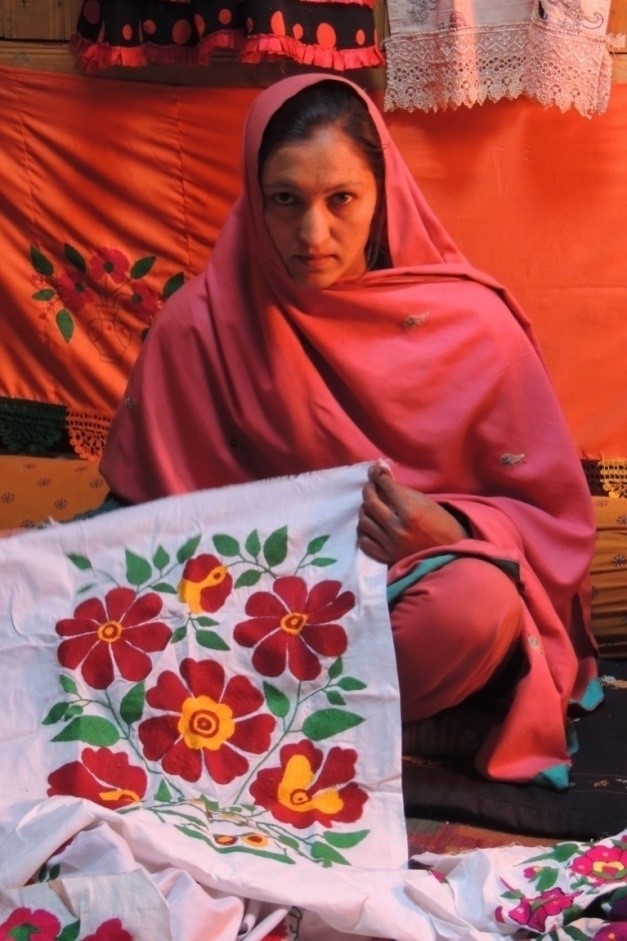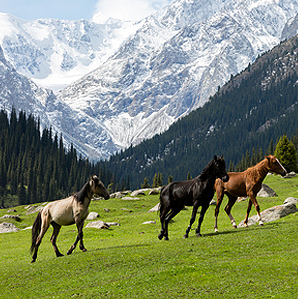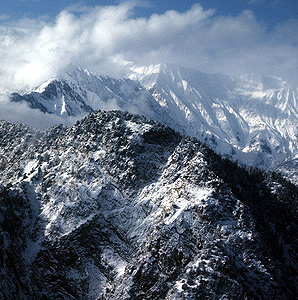Meet Fareeda
Fareeda’s road to economic empowerment began with a six-month alternative livelihood training that WWF organized as one climate adaptation strategy to reduce villagers’ dependence on the local natural resource base in snow leopard range areas of northern Pakistan.
At this training she learned a variety of new skills, including drapery making, design, stitching, embroidery, carpet weaving, and knitting of woolen sweaters and socks. She now earns at least ten-thousand rupees per month from these activities, with which she supports herself and her family, decreasing her and her family’s dependence on livestock rearing.
125 young women like Fareeda in Gilgit-Baltistan have benefitted from training at the newly established vocational center in Hoper Valley, increasing their both their incomes and their financial independence in a climate-smart manner.
At this training she learned a variety of new skills, including drapery making, design, stitching, embroidery, carpet weaving, and knitting of woolen sweaters and socks. She now earns at least ten-thousand rupees per month from these activities, with which she supports herself and her family, decreasing her and her family’s dependence on livestock rearing.
125 young women like Fareeda in Gilgit-Baltistan have benefitted from training at the newly established vocational center in Hoper Valley, increasing their both their incomes and their financial independence in a climate-smart manner.

Highlights
Other climate adaptation activities being carried by WWF in northern Pakistan include the establishment of a demonstration grazing set aside to close a degraded mountain pasture to livestock grazing for several years, planting of trees on degraded land to prevent further deterioration of these sites, and extensive planting of fodder crops on degraded land for stall feeding of livestock to reduce grazing pressure on mountain pastures. All of these activities will contribute increasing the resilience of local mountain ecosystems to climate change impacts while also having benefits for watershed management.
A lasting impact
The introduction of innovative climate vulnerability assessment, climate adaptation, and watershed management planning processes to AHM Project Sites in northern Pakistan will eventually make a large contribution to improving sustainability of development initiatives in this disaster-prone region. Notably, training of women in alternative livelihood activities such as sewing and knitting, home kitchen gardening, and poultry raising is helping empower women by providing them with independent sources of income that they can manage themselves and will provide them with a larger say in managing household affairs.
Discover the Landscapes
This website is made possible by the generous support of the American people through the United States Agency for International Development (USAID). The contents are the responsibility of WWF and do not necessarily reflect the views of USAID or the United States Government.





